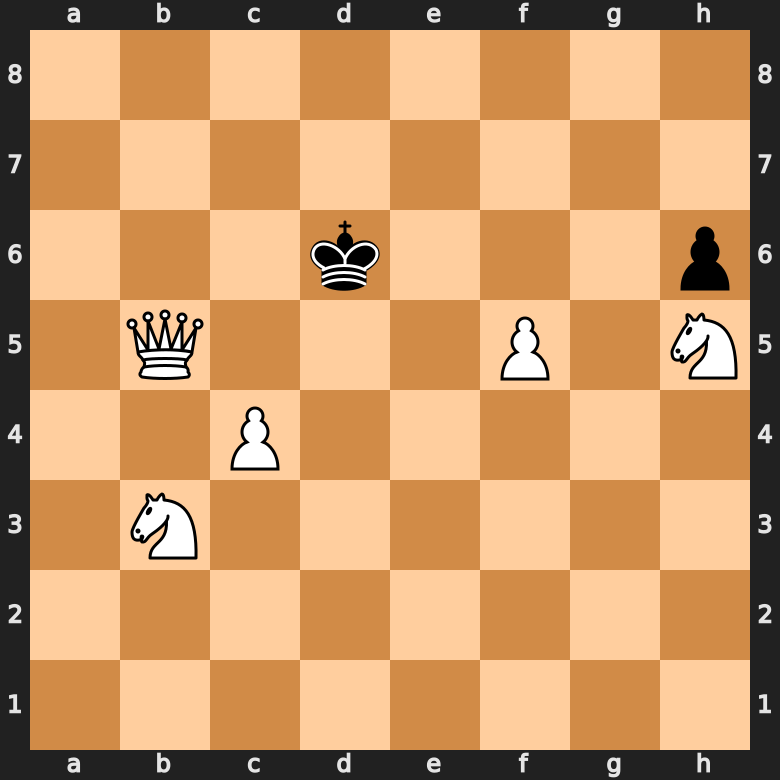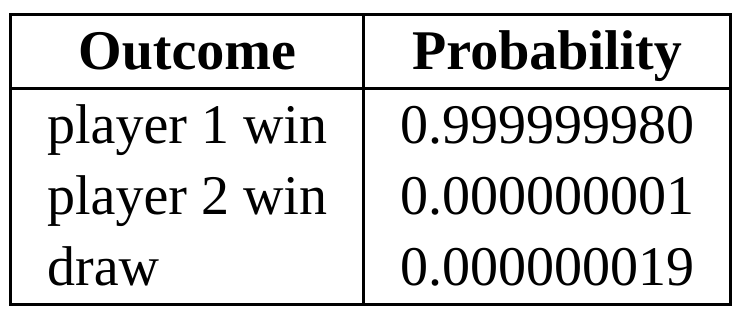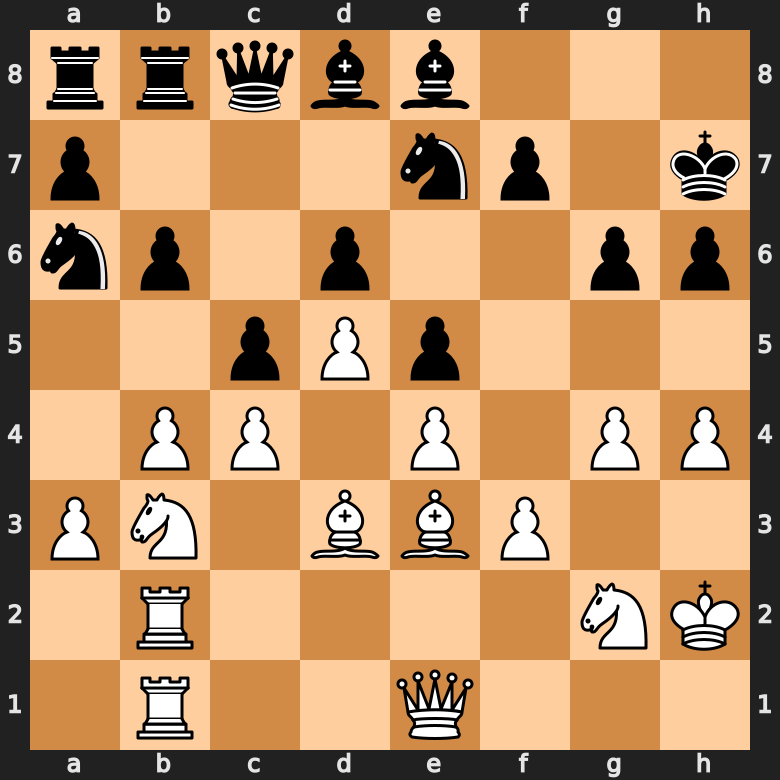10 Mind-Blowing Chess Facts and Statistics
In this article, we’ll look at some astounding chess trivia, statistics and facts that will amaze both seasoned expert as well as chess beginners alike. From the longest tournament game to the earliest known chess manuscripts, these chess facts be sure to give you a new appreciation for the royal game and its players. Let’s dive right in!
1. We Don’t Know How Many Possible Positions There Are In Chess
Do you know how many possible legal positions can occur on White’s first move? That is pretty easy to calculate. You have eight pawns, which can each move up one or two squares as well as two knights, which can each move to two different squares. That gives us 8 + 8 + 2 +2 = 20 possible first moves for White. After we complete the first move (i. e. Black makes their first move) there are already 400 distinct chess positions that can occur. This exponential growth just keeps going: After just five moves 69,352,859,712,417 possible games could have been played.
Now for the fastinating part: We don’t actually know the exact number of possible chess games that can be played, since the number is simply too big to calculate exactly. Of course, scientists have tried to estimate the number of potential positions in chess, but even they came up with varying numbers.
Most famously, Claude Shannon looked at both possible games as well as possible unique positions. He calculated that the amount of possible chess games is about 10120 – for comparison: The observable universe “only” has 1083 atoms. The amount of possible unique positions Shannon came up with are 1043, although this does include some illegal positions.
Quite incredible to think that we are unable to calculate the exact number of chess games and unique positions today, despite our advancements since Shannon’s early calculations in ~1950. The closest we have come is a calculation by John Tromp and Peter Österlund, which puts estimated the amount of legal chess positions at about 4.59(+/- 0.38)x1044 – pretty close to Shannon’s calculation!
If you want to learn more check out the Wikipedia article on the Shannon Number.
2. The Longest Winning Streak In Professional Chess is 20 Games
Okay, that is enough mathematics for today. Let’s now look at the longest winning streak in a chess tournament.
This record is held by legendary Grandmaster Bobby Fisher, who managed to win 20 consecutive games, before being beaten by Tigran Petrosian. This is not to be confused with an unbeaten streak! Bobby Fisher actually managed to checkmate (or win otherwise) against 20 opponents in a row – what an achievement!
Important to note however, that some chess commentators only grant Fisher a 19 win streak, because of Fischer’s game against Oscar Panno, who resigned in protest after Fischer’s first move. No matter what, this record is definitely impressive.
3. The Earliest Known Chess Manuscript is (Probably) From 1471
The first ever written work entirely devoted to chess theory is the Göttingen Manuskript, which is dated to 1500 – 1505 or 1471. It is exactly 33 pages long and features twelve chess openings as well as 30 chess problems. It was discovered at the University of Göttingen in the late stages of the 19th century and is still there today. The fascinating part: We don’t know who wrote it and when exactly!
Here is a chess problem from the Göttingen Manuskript; White to mate in 2:

Can you solve it?
Someone actually took the time to create a Lichess study out of the 30 chess problems, so feel free to play through that part of chess history!
4. The Longest Time Played Correspondence Chess Was 53 Years
Correspondence chess is obviously a slower form of chess, but can you imagine the will-power needed to play chess against the same person for 53 years? Well, that’s exactly what Dr. Reinhart Straszacker and Dr. Hendrik Roelof van Huyssteen did from 1946 to October 13th 1999, when the longest ongoing correspondance match took an abrupt end with the death of Straszacker.
What is even more faszinating is the fact that up until that last correspondence game, both players were drawn in terms of games won. Unfortunately, this match couldn’t be decided.
5. The Odds of an Average Player Defeating Magnus Carlsen (Almost) Zero
Have you ever dreamed of playing Magnus Carlsen? Well, I sure have. But have you thought about your chances off actually winning against him? I did the math and the results… well they don’t look too promising for you.
Let’s assume Magnus plays with a strentgh of 2800 Elo, while you (an average player) has an Elo rating of around 1200. Plugging that into a winning chance calculator gives us the following odds:

- Magnus Carlsen will win with a certainty of 99.999998%
- The game will end in a draw with a probability of 0.0000019%
- Your chance of winning the game is 0.0000001%
Well, good luck with that!
6. The Longest Tournament Chess Game Was Over 269 Moves Long
When evaluating the longest chess game, we really have to look at the number of moves played, otherwise time format becomes a deciding factor. The top spot for chess game with the most moves played goes to the matchup Nikolić vs. Arsović, which was played in 1989 in Belgrade.
The game ended in a draw after painful 269 moves and took both players 20 hours and 15 minutes to complete.
Funny side note: That game was only possible because of a modification FIDE made to the 50-move-rule at the time of that game. Needless to say, FIDE quickly took back the change to the rule to avoid such long games in the future.
7. The Latest First Capture in a Game Took 94 Moves
In a game between Arthur Howard Williams and Kenneth Rogoff during the World Junior Chess Championship 1969, which took place in Stockholm, it took 94 Moves (that is longer than 99% of all chess games anyway!) for the first capture to occur. A simple pawn capturing another pawn finally broke the spell, with White playing 94.bxc5:

The game supposedly ended in a draw at move 221, but there is no definitive evidence for any moves beyond move 106 on the internet (if you have more information, please reach out!).
8. Nicholas MacLeod Lost 31 Games In A Single Tournament
A rather unfortunate chess record (let’s call it statistic) is held by Canadian chess master Nicholas MacLeod. While playing in the Sixth American Chess Congress in 1889, he managed to lose 31 out of the 38 games he played. That is a loss ratio of over 80%! At least he managed to win six games and draw another one.
But MacLeod was far from a bad player: Just 3 years later he managed to beat legendary World Chess Champion Emanuel Lasker in a simul exhibition.
9. The Shortest Decisive Tournament Game Was Only 3 Moves Long
There have been many tournament games with zero moves, for example because players forfeited a game or resigned early out of protest. But those aren’t cool. Instead, we’re going to look at games that were decisively ended on the board.
That record goes to a game between Z. Đorđević and M. Kovačević in 1984 in Bela Crkva. Only three moves were played in the game:
1.d4 Nf6
2.Bg5 c6
3.e3 Qa5+
After that, White resigned the game. To brush up your chess visualization, can you see why White resigned without setting up a board the replay the game?
10. During Covid, Interest in Chess Spiked by Over 100%
It is no surprise that Covid was a blessing in disguise for the chess world. With people being stuck at home, it was only a matter of time before they dug out the old chess board or started watching chess online. But now, we even have concrete data to back up how much exactly interest in chess has spiked during the covid pandemic.
Looking at Google Trends – which is a reliable way to gauge interest in a topic by looking at search volume – we can see that interest in the search term “chess” almost doubled during the first lockdowns:
You can check the current Google Trends data for chess on your own.
What’s also nice to see: That growth hasn’t stopped! It seems that the initial boost in interest lead to a wave of secondary growth, that gets more and more players to (re)discover chess! Let’s hope it continues that way.

